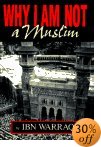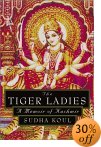|
| Home | About Kashmir Herald | |
Volume 2, No. 5 - October 2002 |
|
| Featured Article |
|
|
|
Wahi: The Supernatural Basis of Islam Part I
- The Yogic View of the Quranic Trance [Editor's Note: Kashmir Herald is honored to have Dr. Koenraad ELST write a series of articles exclusively for Kashmir Herald. His series of 4 exclusive articles on "The Supernatural Basis of Islam" will be published exclusively here on Kashmir Herald.] In discussing Islam, most non-Muslims tend to focus on the negative achievements of Islam, such as Islamic mistreatment of women and unbelievers. However, we should realize that in its essence, Islam is a belief system, a truth claim. The Islamic religion stands or falls with the truth or untruth of two assertions: (1) there is no God but Allah, the Creator of the universe; and (2) Mohammed is the final spokesman of Allah, who through him passed on to mankind a series of messages assembled in the Quran. This is understood to have been a constant process of "revelation" from AD 610, when Mohammed was 40, until his death in AD 632. The first belief is a theological claim which Islam has in common with some other religions, and which could even be reconciled with some schools of Hinduism (ďthe wise call the One True One by many namesĒ) if subjected to cunning interpretation. The second belief, by contrast, is the truly defining truth claim of Islam, setting it apart from every other religion: the prophethood of Mohammed. In this series of articles, we will discuss some non-Islamic views of this core assertion of Islam. The present paper will focus on the Hindu view of Mohammedís prophethood. Before the colonial age, there was hardly any Hindu evaluation neither of Mohammedís prophetic claims, nor even of Islamic doctrine in general. The first detailed criticism of Islam, and in particular of the Quran, was written by Swami Dayananda Saraswati, founder of the Vedic reform movement Arya Samaj. He mainly lambasted the contradictions, irrational beliefs and inhumane injunctions in Islamic scripture. Arya Samaj criticism of the Prophet typically focused on his dictatorial and immoral personal behaviour (e.g. Rajpalís Rangila Rasul, about Mohammedís sex life), not on the source of his ďrevelationsĒ. The basis of Islam is the belief that Mohammed regularly went into a state of trance (wahi) and heard a voice dictating Allah's own words. As Hindu students of Islam have been pointing out in recent years, many of Mohammed's contemporaries were skeptical of his recipiency of divine messages: "The Meccans stood firm by their gods; their faith in the gods was not at all shaken by Muhammad's attacks. Allah reports: 'When it was said unto them, There is no God save Allah, they were scornful, and said: Shall we forsake our gods for a mad poet?' (Q.37:36/35) 'And they marvel that a warner from among themselves had come. They say: This is a wizard, a charlatan.' (Q.38:4/3) " (S.R. Goel: Hindu Temples, vol.2, 2nd ed., p.334) It was probably Swami Vivekananda who first connected the questionable nature of Mohammed's leadership with the nature of his prophethood. Mohammed had to be ruthless in imposing adherence to his belief in his own divine mission because this belief could not stand on its own, based as it was on a delusion. If your neighbour, whom you have known for years as an ordinary businessman, tells you one day that he is hearing Godís voice and that you have to obey his divine instructions from now on, you would not readily give in to his demand. Instead, you would certainly wonder what had happened to him. So, Vivekananda offered one hypothesis of what had happened to Mohammed to make him believe in his own selection as Godís sole living spokesman. The specifically Hindu contribution to our understanding of the Quranic revelation is to bring in the yogic experience. As an example of how yogic practice can go wrong, warning against the dangers of experimenting with yoga without competent guidance, Swami Vivekananda mentioned none other than Mohammed: "The yogi says there is a great danger in stumbling upon this state. In a good many cases, there is the danger of the brain being deranged, and, as a rule, you will find that all those men, however great they were, who had stumbled upon this super-conscious state without understanding it, groped in the dark, and generally had, along with their knowledge, some quaint superstition. They opened themselves to hallucinations. Mohammed claimed that the Angel Gabriel came to him in a cave one day and took him on the heavenly horse, Burak, and he visited the heavens. "But with all that, Mohammed spoke some wonderful truths. If you read the Koran, you find the most wonderful truths mixed with superstitions. How will you explain it? That man was inspired, no doubt, but that inspiration was, as it were, stumbled upon. He was not a trained Yogi, and did not know the reason of what he was doing. Think of the good Mohammed did to the world, and think of the great evil that has been done through his fanaticism! Think of the millions massacred through his teachings, mothers bereft of their children, children made orphans, whole countries destroyed, and millions upon millions of people killed! (...) So we see this danger by studying the lives of great teachers like Mohammad and others. Yet we find, at the same time, that they were all inspired. Whenever a prophet got into the super-conscious state by heightening his emotional nature, he brought away from it not only some truths, but some fanaticism also, some superstition which injured the world as much as the greatness of the teaching helped." (Vivekananda: Complete Works, vol.1, p.184, from the book Raja Yoga, Ch.7: "Dhyana and Samadhi") Mental disturbance as a consequence of meditative experiments had already been named as the cause of the Quranic revelations by Gisbertus Voetius, a 17th-century Dutch Calvinist theologian who trained missionaries for conversion work in Indonesia (discussed in Karel Steenbrink: Dutch Colonialism and Indonesian Islam). Protestants who had abolished monastic institutions and were scornful of the ascetic practices of Catholic and Orthodox monks, liked to point out such dangers, and the warning seemed to apply to the case of Mohammed as well. Most yoga manuals emphatically warn against wrongly practising the techniques of Hatha Yoga, which are very powerful whether used properly or in disregard of the concomitant rules. Yogic masters can relate anecdotes of pupils or colleagues who spurned the precautions and practiced dangerous forms of pr‚n‚y‚ma ("breath control" or "control of the vital energies") till they impaired their nerve systems. One well-known written testimony of the painful and lasting effects of erratic yogic practice is given by Gopi Krishna in his book Kundalini. Arya Samaj leader Vandematharam Ramachandra Rao told me of one case involving a friend of his who inflicted brain damage on himself and died of a stroke as a consequence of improper pr‚n‚y‚ma practice. Likewise, Taoist Qigong comes with the same warning and anecdotes. Many mystic phenomena the world over come about as cases of stumbling upon certain states of consciousness, which may lead to some kind of "enlightenment" but also to serious delusions, most typically megalomania, witness the self-importance of the assorted gurus and messiahs in the modern cult scene. Hindu yogis claim to have left these dangerous mind games behind because their forebears have developed a safe and sound method laid down in such classics as Patanjali's Yoga Sutra. Ram Swarup (Hindu View of Christianity and Islam, p.45-46) argues that the methodical and systematic "science of yoga" has a substantial qualitative edge over other forms of mysticism or mediumism. From this angle, it is unfair (even if fashionably in tune with the "equal truth of all religions" doctrine) to put yoga in one class with the experiments of Shamans taking hallucinogenic plants, or with the uninvited voice-hearing experiences of Mohammed. In recent years, Ram Swarup and Sita Ram Goel have further developed Swami Vivekananda's position on the nature of Quranic revelation. Ram Swarup has elaborated on the yogic theory of samadhi (enstasis) states of different levels of purity, which allows for states of high concentration tainted by delusion (Hindu View of Christianity and Islam, p.107). S.R. Goel has pointed out the similarity between Mohammedís experiences and that of other men who combined a susceptibility to convulsive trance states with a great charisma and strategic ability, most notably Chengiz Khan (foreword to Goel, ed.: The Calcutta Quran Petition, p.103 ff.; with reference to A. Guillaume: Life of Muhammad, p.104/150-107/154). They conclude that the Pagan Arabs had every right to reject Mohammed's claims, born from a deluded consciousness and then propagated on a war footing, but that they made the one mistake which history does not forgive, viz. the mistake of being defeated. However, "the fact that they failed to understand the ways of Mohammed and could not match his mailed fist in the final round should not be held against them. It was neither the first nor the last time that a democratic society succumbed in the face of determined gangsterism. We know how Lenin, Hitler and Mao Tse-tung succeeded in our own times." (Goel: Hindu Temples, vol.2, 2nd ed., p.272) As far as I can see, the foregoing constitutes the single most radical criticism of Islam available in the world. Christian critics, no matter how fierce, usually appreciate at least Mohammed's monotheism, which does not impress these Hindu authors. They are also inhibited in criticizing the deluded nature of Mohammedís ďrevelationsĒ, as they profess a belief in the divine revelations to the Old Testament prophets. Though "irreverent" and "demythologizing" are among the most specious words of praise in the review columns of modern newspapers, few people have the stomach for something as irreverent and demythologizing as the Hindu Revivalist analysis of the Prophet's mission. [Part II: The Modern Medical view of Mohammedís Prophethood, will be published next month.] [Born in Leuven, in the year 1959, Koenraad Elst grew up in the Catholic Community in Belgium. He was active for some years in what is known as the new Age movement, before studying at the famed Catholic University of Leuven (KUL). He graduated in Chinese Studies, Indo-Iranian Studies and Philosophy. He earned his doctorate magna cum laude with a dissertation on the politics of Hindu Revivalism. He took courses in Indian philosophy at the Benares Hindu University (BHU), and interviewed many Indian leaders and thinkers during his stay in India between 1988 and 1992. He has published in Dutch about language policy issues, contemporary politics, history of science and Oriental philosophies; in English about the Ayodhya issue and about the general religio-political situation in India. A few of his latest books are:
While doing research in Indian philosophy at Benares Hindu University, he started taking an interest in the ongoing Rushdie and Ayodhya controversies and the larger debate on secularism. He published several books on the historical Ayodhya file. He is currently working as a free-lance scholar and columnist.] |
 |
 |
 |
|
|
Archives
| Privacy Policy |
Copyrights
|
Contact
Us | |
||